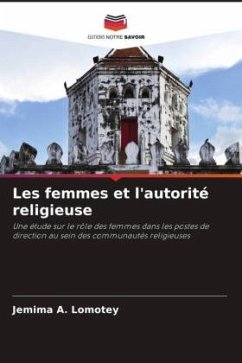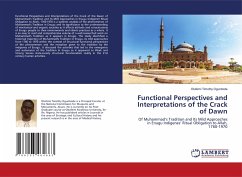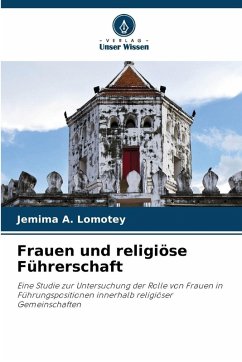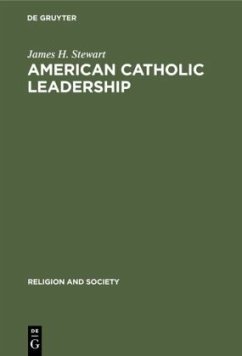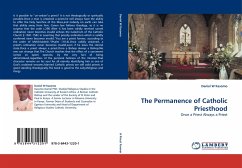
Women and Religious Leadership
Versandkostenfrei!
Versandfertig in 6-10 Tagen
29,99 €
inkl. MwSt.

PAYBACK Punkte
15 °P sammeln!
This study explores the complexities of women's leadership roles in religious communities, examining theological, doctrinal, institutional, and cultural barriers that hinder their ascension. Using a qualitative approach, data was collected from Christian, Muslim, Traditionalist, and Hindu backgrounds and analyzed through thematic analysis of interviews. Findings reveal that theological justifications, often rooted in sacred texts and male-dominated interpretations, serve as a primary exclusionary factor. Feminist theologians advocate for a more inclusive reading that affirms women's spiritual ...
This study explores the complexities of women's leadership roles in religious communities, examining theological, doctrinal, institutional, and cultural barriers that hinder their ascension. Using a qualitative approach, data was collected from Christian, Muslim, Traditionalist, and Hindu backgrounds and analyzed through thematic analysis of interviews. Findings reveal that theological justifications, often rooted in sacred texts and male-dominated interpretations, serve as a primary exclusionary factor. Feminist theologians advocate for a more inclusive reading that affirms women's spiritual authority. Institutional resistance also plays a key role, with hierarchical structures maintaining traditional norms. However, democratic governance models show greater openness to female leadership. Cultural dynamics further shape acceptance, as societal attitudes toward gender roles influence opportunities for women in religious leadership. The study underscores the need for reconsideringthese barriers to foster a more equitable and inclusive religious leadership landscape.



